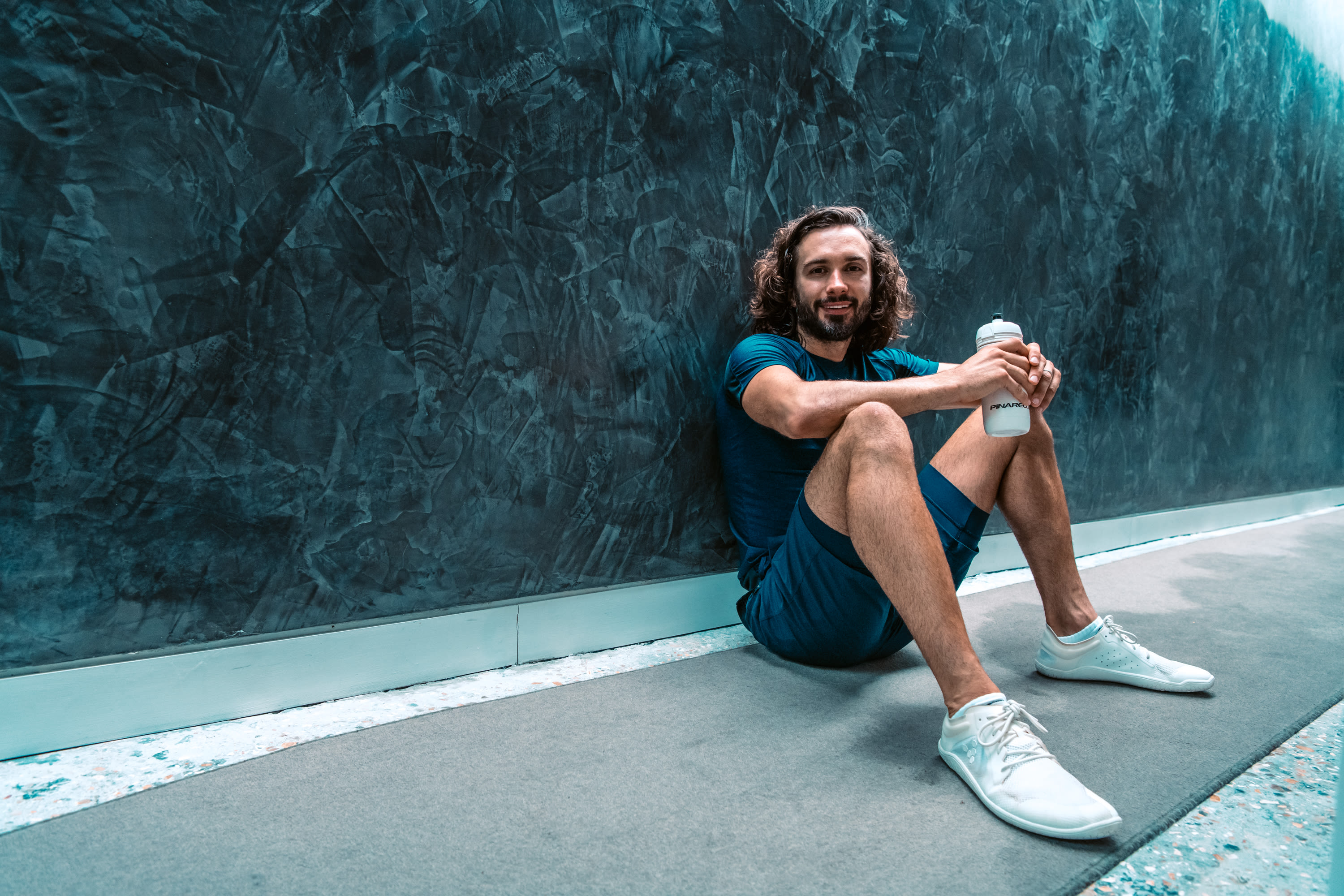Pesto Pasta Salad
This salad recipe is banging!
Save £80 and feel fitter, healthier and happier – together.

I read this book a few months ago called Ultra-Processed People: Why Do We All Eat Stuff That Isn't Food ... and Why Can't We Stop? by Dr Chris van Tulleken.
The title of the book resonates with me. I'm never going to be living that life where I don't enjoy treats. But it's good to learn how these foods affect our body, our mood, our mental health, our digestion, and our energy levels. A lot of people may not read it, but I want to share what I've taken from the book, and hopefully help you in your own journey.
And that's all I really want to do: get people moving, eating well and feeling good. That's my mission in life.
There are so many foods we eat that we don't realise are ultra-processed.
Ultra-processed means things that have a long shelf life with loads of ingredients on the back of things that you might not find in a kitchen: think bread, yoghurt, snacks, chocolate, frozen ready meals, pizza sauces. It's all gone through some level of processing.
These foods are addictive and once you open you start eating them, you can't stop. They are designed and engineered to be consumed in that way, the book explains, through the marketing, product, packaging, taste, textures… all these things are added to them.
And they have one sole mission: to make you eat more, over-consume, come back and buy more. When you understand the power these companies have, you realise it's not your fault.
In the the book, the author said he and his brother experimented eating only junk food and, after a few days of that, they didn't want it anymore. I was really hoping that was going to happen to me, but it didn't.
I still have days I just want to have a binge. I feel terrible, and even though it tastes great, I know what's going to come. Hours later: cramps, diarrhoea, mad bloating. It makes me unmotivated and grumpy. Food has a massive effect on our mood. I break it down to: good food, good mood; junk food, junk mood.
This book gave me a lot of compassion for people struggling with their diet or weight. It impacts low-income families a lot more, but regardless of income, we're all eating the same crap. We're convinced we need to buy these snacks, or that they're healthy because they're organic or gluten-free. But they've all gone through some level of ultra-processing. Everything is okay in moderation, but most people – myself included – can't eat biscuits or chocolate in moderation, which is why it's so difficult.
We don't have as much choice as we think we do about the foods we eat. If you think about supermarkets, train stations, vending machines… everywhere we go, we're bombarded with ultra-processed foods. These foods are designed to be addictive and tasty. Dr Tulleken describes it in the book as "ultra palatable": you can mush it and eat it so fast, so you consume so much before your brain even knows, "oh, I'm full up now".
I want to put this into context because although I live in a lovely big house and my life is very different now, I grew up in 1985 on a council estate, on benefits. 95% of my diet was ultra-processed foods – my mum didn't know how to cook, she hadn't been educated on that.
But there is hope. Just because you start life unhealthily, it doesn't mean you can't change those habits. The most important thing to do is to know it isn't your fault.
We can talk about the problem, complain, moan and blame everything else. But the only person who can take responsibility for what we eat is ourselves.
And I am going to boil it down to one simple thing: cook more food.
Get back in the kitchen, get a cookbook, fall in love with cooking, get your kids involved.
I teach my children how to cook. They're only little, but they stir their own porridge, add berries, chop up a few veg, and put spices in. It's an important life skill teaching them not only to cook, but also to enjoy the process and enjoy eating food they've made themselves.
I don't want to be demonising foods because I never have and I never will, but what you've got to do is gradually reduce some of these things from your life. Cook more at home, carry your lunch to work, get into the mindset of taking control of the food you put in your body.
It's not about revolutionising your diet, it's small, little changes.
I just hope that you can make some choices today. Be kind to yourself. If you have a day where you're stressed and turn to food, you're not the only one. I'm The Body Coach and I do it. For me, it's limiting the temptation. When it's in the house I find it so hard to moderate my consumption of these ultra-processed foods.
Think about this:
Whole foods
Cook more
Prep more
Batch cook
Get kids involved.
It's not easy but you can make changes. There is hope.